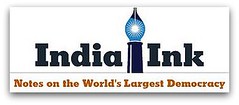Vinod Mehta pays a very fine tribute to Sham Lal in the latest issue of Outlook, the death of the former Times of India editor providing occasion to look at how the role of editors has changed between then and now.
“What is the difference between the editor of the 1970s and 2007? Simple yet profound. The 1970s editor clocked in at 10 and clocked out at 6.30. He read voraciously, talked to like-minded friends and scholars, furiously debated issues, checked and re-checked information for veracity and poured out the distilled wisdom onto the Edit Page. He did not make speeches at seminars, anchor TV shows, visit cocktail parties, take part in book discussions, judge fashion shows, wear sharp clothes. The editor was not yet a celebrity. He was neither seen nor heard. He was just read…
“The editor of 2007, with honourable exceptions, flaunts his proximity to politicians, especially those in power. You often hear in hushed tones, “so and so is close to….” In fact, in the marketplace, editors are renowned not for their professional skills or ability to produce readable titles, they are renowned for which cabinet minister they are close to.For me being close to a politician only means he or she will plant a story on you, or stop you from doing a story which is not in his or her interest. It is a lose-lose situation for the editor.”
Read the full article here: Editors then, editors now








super
The fall from the pedestal is because of the changed orientation of newspapers. Today newspapers are brand savvy and market driven machines, unlike the past when they had the primary duty to inform and educate.
The likes of Shamlal would be totall misfits in the present media milieu.